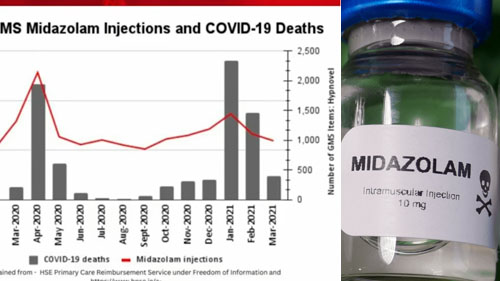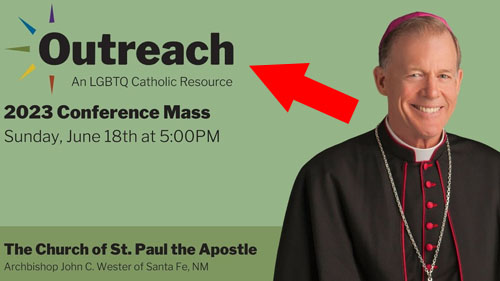| Recent Featured Videos and Articles | Eastern “Orthodoxy” Refuted | How To Avoid Sin | The Antichrist Identified! | What Fake Christians Get Wrong About Ephesians | Why So Many Can't Believe | “Magicians” Prove A Spiritual World Exists | Amazing Evidence For God | News Links |
| Vatican II “Catholic” Church Exposed | Steps To Convert | Outside The Church There Is No Salvation | E-Exchanges | The Holy Rosary | Padre Pio | Traditional Catholic Issues And Groups | Help Save Souls: Donate |  |









 " />
" /> " />
" /> " />
" /> " />
" /> " />
" />




The Bible Teaches Purgatory
There is proof for Purgatory in the Bible. It’s found in 1 Corinthians chapter 3, verse 15. Let’s examine this Biblical proof for Purgatory. I will use the 1611 King James Version of the Bible, a famous Protestant translation.
1 CORINTHIANS 3:15 IS IRREFUTABLE PROOF FOR PURGATORY
Now let’s look at the last part of this passage again. In 1 Corinthians 3:15, we see: “If any man’s work shall be burned, he shall suffer loss: but he himself shall be saved, yet so as by fire.” So we have a man whose works have been judged. His works are, in fact, burned; and he suffers loss; yet he is saved, but by fire. He suffers loss, but is saved by fire.
WHAT DOES “SUFFER LOSS” MEAN IN THIS PASSAGE?
The Greek word which is translated as “suffer loss” is zemiothesetai. It comes from the Greek word zemioo. Forms of this same Greek word, zemioo – which is translated as “suffer loss” in 1 Cor. 3:15 – are found in other passages in the Bible. The word is used to mean punishment. In Exodus 21:22, Proverbs 17:26, Proverbs 19:19 and elsewhere, this very Greek word zemioo is used to mean punishment. That means that zemiothesetai, the word translated as suffer loss in 1 Cor. 3:15, can mean punishment.
So, the man who suffers loss and is saved by fire can mean a man who is punished and is saved by fire. Doesn’t that sound just like Purgatory? Yes, it sounds exactly like Purgatory because that’s what it’s referring to. But there is more from the context to demonstrate the point. Who is this man, and why is he suffering loss or punishment and being saved by fire?
THE CONTEXT OF 1 COR. 3 CONCERNS CHRISTIANS AND CERTAIN SINS OR BAD WORKS
The context of 1 Corinthians 3 deals with members of the Church of Christ; it deals with Corinthian Christian believers. 1 Corinthians 3:3 tells us that some of these Corinthian Christians were falling into sinful imperfections and offenses against God. Some of these bad works or sins are identified in 1 Corinthians 3:3 as strife, divisions and envying.
So the context of 1 Corinthians 3 deals with the different kinds of works of believers; some of them are not so good. These different kinds of works (good and bad) are described in 1 Corinthians 3:12.
There are good works, which are called: gold, silver and precious stones. These signify a better or more perfect adherence to the Gospel of Christ. Then there are other works, which are not so good. These bad works or sins included unnecessary quarrelling, strife, jealousy and divisions (as mentioned above). These are described as: wood, hay and stubble. These are the works that are burned in 1 Cor. 3:15, for which the man suffers loss or punishment; but he is saved, yet so as by fire.
This context fits perfectly with the Catholic teaching on Purgatory. The Catholic Council of Lyons II defined Purgatory this way:
Purgatory is not for those who have died in the state of serious (i.e., mortal) sin. All such persons go to Hell, as is made clear in Galatians 5:19-21, 1 Cor. 6:9, and Ephesians 5:5-8. Purgatory is for those of the true faith who have been forgiven for their sins, but have yet to make full satisfaction for the sins they have committed (more on this below).
Therefore, in 1 Corinthians 3:12, the wood, hay and stubble (which are burned) signify the works of a man who has died in the state of justification and has been forgiven of any mortal sins he might have committed. He is therefore eventually saved, but he hasn’t made satisfaction for sins committed after baptism.
THE CASE OF DAVID IS AN EXCELLENT EXAMPLE OF A MAN WHO HAS BEEN FORGIVEN OF HIS SIN, BUT HASN’T MADE FULL SATISFACTION FOR IT
A great example of a man who has been forgiven of his serious sin, but hasn’t made satisfaction for it, is found in the case of David. In 2nd Samuel 11 (2 Kings 11 in the Douay-Rheims Catholic Bible), we read that King David committed adultery with Bathsheba. David also had her husband killed. These are mortal sins. If David would have died in that state, he would have gone to Hell. 1 Cor. 6:9 shows us that no adulterers or murderers will enter Heaven. But David repented of his sin when convicted of it by Nathan in 2 Samuel 12.
The Lord took away David’s sin, and Nathan said that he would not die. This means that he would not eternally die. The guilt of the sin was forgiven because David truly repented and turned from it, but was that the end of it? No, full satisfaction for this mortal sin had not been made. We read in 2 Samuel 12:14-15 that David had to suffer the loss of his child to make satisfaction for his sin – a sin which had already been forgiven.
This provides undeniable proof that the guilt of a sin of a believer can be forgiven without the entire punishment being taken away. The Council of Trent put it this way:
In this citation from the Council of Trent, we see references to numerous places in Scripture where a sin is forgiven without the entire punishment also being remitted. The example from Numbers 20 should be quoted.
When Moses, in obedience to God’s command, struck the rock in order to miraculously bring forth water, there was a certain level of hesitation in the act or in the manner in which he and Aaron presented it to the people. A Catholic commentary explains it: “The fault of Moses and Aaron, on this occasion, was a certain diffidence and weakness of faith; not doubting of God's power or veracity; but apprehending the unworthiness of that rebellious and incredulous people, and therefore speaking with some ambiguity” (Douay-Rheims Commentary).
As a result, God told Moses and Aaron that they would not be the ones to bring the people into the promised land. This was their punishment, even though they remained in God’s favor. This punishment was fulfilled. It was Joshua and Caleb who led the people into the promised land.
NOTHING IMPURE SHALL ENTER HEAVEN
This kind of satisfaction for the remaining punishment due to forgiven sins is often done on Earth by good works and prayers, by suffering trials and tribulations, and by a more perfect adherence to the true faith. If such satisfaction is not done on Earth, it is and must be done in Purgatory – assuming that the person dies in the state of grace (justification). The satisfaction must be done because the Book of Revelation, the Apocalypse, makes it clear that nothing impure shall enter Heaven.
We see the same thing in the Book of Hebrews.
Now it must be emphasized that Purgatory is not for those who die in mortal sin or outside the true faith. It’s only for those who die in the state of grace, which is also known as the state of justification. It’s for those who die in grace, but haven’t satisfied for the temporal punishment due to their forgiven mortal or venial sins, which were committed after baptism.
THE BIBLE TEACHES THAT THERE ARE MORTAL SINS AND LESSER (VENIAL) SINS
Mortal sins destroy the state of justification. That’s why Galatians 5:19-21, 1 Cor. 6:9, and Ephesians 5:5-8 teach that people who commit such mortal sins lose “their inheritance” in Heaven (justification). Examples of mortal sins are fornication, murder, drunkenness, lying, cheating, stealing, fraud, theft, masturbation, looking at pornography, giving full consent to impure thoughts, homosexuality, heresy, idolatry, violating the commandments, etc. If people die in the state of mortal sin, they will be damned. 1 John 5:16 distinguishes between sins which lead to death and sins which don’t.
In their consciences people know that there is a great difference between murder and something such as unjustifiable outbursts of anger or impatience. The former is clearly a mortal sin, while the latter is a venial sin. (Anger can also be justifiable, by the way.)
Venial sins (i.e., lesser offenses against God) weaken the soul, and make it more vulnerable to mortal sin. Mortal sins destroy the state of justification and put one in a state of damnation. That’s why immediately after the verse which proves Purgatory (1 Cor. 3:15), we read this:
This speaks of those who die in mortal sin: unjustified. They will be lost. Mortal sin can be forgiven only by confession to a valid priest, as proven from John 20:23. It can also be forgiven by perfect contrition with the intention to go to confession.
In an attempt to escape that conclusion, some non-Catholics who deny Purgatory argue that the context of 1 Cor. 3 doesn’t deal with sins, just bad works. They construct a (false) dichotomy between sins and bad works, as if they are two separate categories. They say that there are bad works which are not sins. But that attempt fails miserably in light of 1 Cor. 3:17 (above). 1 Cor. 3:17 demonstrates that the context deals with sins for which some of them are being destroyed (damned). Further, the New Testament does not teach that there is a difference between sins and bad works.
All of this establishes that the lesser sins or the satisfactions or imperfections which are left over for some and burned up in 1 Cor. 3:15 are indeed punishments for sins in Purgatory.
OTHER INDIRECT PROOFS FOR PURGATORY:
MATTHEW 5:25 AND MATTHEW 12:32
Other indirect proofs for Purgatory are found in other parts of the New Testament. The following parable of Jesus is an example.
We see that Jesus tells the parable of the man who, for his faults, is cast into prison until he pays up or satisfies for his debt. That’s exactly like Purgatory.
Matthew 12:32 is also very relevant to this issue.
Why would Jesus say that the sin against the Holy Ghost will not be forgiven in this world or in the world to come? A father of the Church, such as Pope St. Gregory the Great, understood these words of Jesus to indicate that certain sins will be forgiven or satisfied for in the next world: in Purgatory.
JOHN 15:2 AND 1 PETER 1:7:
GOD USES FIRE AND DISCIPLINE TO PURGE HIS CHILDREN – THIS CORRESPONDS TO PURGATORY
The Bible also teaches that God uses fire and discipline to reform and purge His children.
Jesus disciplines His children, to make them more perfect and to bear more fruit. If this is not done unto satisfaction on Earth, it must be done in Purgatory.
BUT DIDN’T JESUS’ SUFFERINGS ON THE CROSS MAKE UP FOR EVERYTHING?
Some non-Catholics like to think that Jesus Christ’s passion and death made up for everything, including the penalty due to all future sins. There are no worries about something such as Purgatory, they say, because Jesus Christ paid the price for it all. This argument is false for many reasons.
First, it’s proven false by Colossians 1:24.
This verse might be a shock to some who are not familiar with it. Paul says that he fills up, for the Church, those things that are wanting or lacking in the sufferings of Christ. Christ’s suffering was perfect and of infinite value; so what does this mean?
What St. Paul means is that many sufferings are still wanting and needed for the members of the Church to work out their salvation, which was all made possible by Christ’s sacrifice. This verse proves that Christ’s sacrifice doesn’t do away with all worries about the possibility of future punishment due to one’s sins. If so, then Paul would never say that his sufferings fill up for members of the Church that which is wanting in the sacrifice of Christ; nor would Jesus speak of the punishments for sins, which He repeatedly does. This verse, Colossians 1:24, also proves the Catholic doctrine of the communion of saints, and the effect of intercessory prayer and sacrifice.
Second, the aforementioned Protestant argument is refuted by the following: If it were true that Jesus’ sacrifice made up for everything, including the future punishments due to every man’s sins, then no one would have to believe or do anything to be saved. Jesus’ sacrifice would have paid the price for it all. But even the non-Catholics who argue that Jesus made up for everything admit that not all men are saved. They admit that people must do something to be saved. With such an admission, they contradict themselves and disprove their argument that Christ’s sufferings took care of everything.
Third, this argument is based on a grave misunderstanding of the Redemption of Christ. What is the meaning of Jesus Christ’s passion and death? Jesus Christ redeemed the world and destroyed men’s sins, as the Catholic Council of Florence defined.
It means every sin that is forgiven is forgiven by Jesus Christ, and specifically by the merit of His passion and death. This forgiveness is granted only to those who follow Him and do what He says must be done, which enables them to benefit from His Redemption. It does not mean that God will not punish people for future sins. It does not mean that the penalty for all the sins of the whole world has been taken away.
THE (TRUE) OLD TESTAMENT PROVES PURGATORY – 2 MACHABEES 12:46
There’s another proof for Purgatory. It comes from the Second Book of Machabees. Some non-Catholics might immediately think: that book is not in my Bible. It’s true that the Books of the Machabees are not in the Protestant Bible. They are not in the Protestant Bible because Martin Luther, the first Protestant, removed them when he split from the Catholic Church. He also added the word “alone” to Romans 3:28, and criticized other books which were left in the Protestant Bible, such as the book of James.
In all, the Protestant Bible is missing seven books from the Old Testament. These books were removed because they contain things which Catholicism teaches and Protestantism rejects. Even though they were part of the canon or collection of Scripture since the time of the ancient Church, the Protestant Bible rejects them. The fact that the books which the Protestants reject (such as the Books of the Machabees) are truly part of Scripture can be proven from the Bible itself.
THE SEPTUAGINT
There is something called the Septuagint. The Septuagint was the famous Greek translation of the Old Testament which was made by seventy scholars a few centuries before the birth of Jesus Christ. You can read much about the Septuagint on the internet. This famous translation of the Old Testament from Hebrew into Greek contains the seven books which the Protestant Bible rejects. Now here’s the interesting part. There are about 350 quotations from the Old Testament in the New Testament which has come down to us. Well, about 300 of those quotations are from the Septuagint version of the Old Testament. In other words, the New Testament, which even Protestants have, quotes the version of the Old Testament which accepts the Catholic books of the Bible. This means that the New Testament writers accepted the Septuagint version, and thus the seven books which the Protestants reject. But there’s more. In Hebrews 11:35 of the Protestant and Catholic Bibles, we see a reference to an event which is only recorded in the Second Book of Machabees chapter 7.
This reference is found in only one place in the Bible. It’s found in 2 Machabees 7, which tells the story of the mother and her seven sons. This mother and her seven sons refused deliverance from torture so that they might receive resurrection with the just. So, in Hebrews 11:35, St. Paul is making reference to the Second Book of Machabees. This demonstrates that 2 Machabees, which the Protestant Bible doesn’t have, is part of the true Old Testament. 2 Machabees chapter 12 clearly teaches prayer for the dead and therefore Purgatory.
This verse teaches Purgatory. It says it’s a holy thought to pray for the dead that they may be loosed from their sins. The Bible thus teaches that there is a place after death where some of the faithful who will be saved are detained, where they can be aided by prayer. This corresponds to the teaching of 1 Corinthians 3:15, which we already saw, that some people are saved while suffering loss (or punishment) but by fire. That place is Purgatory, and this verse clearly proves it. That’s why this book was removed from the Bible by those who wanted to invent a new version of Christianity – one that is not conformable to Tradition or the teaching of the Bible.
THE FATHERS OF THE CHURCH BELIEVED IN PURGATORY AND PRAYERS FOR THE DEAD
In addition to all of this biblical proof, Purgatory is proven by the fact that the fathers of the Christian Church believed in it and in prayers for the dead. St. Augustine is a famous father of the Church. St. Augustine is regarded with honor by Catholics, and generally by non-Catholics who claim to be Christian. He clearly believed in Purgatory.
Notice that St. Augustine says that the whole Christian Church prays for the faithful departed: those who died in proper communion with the true Church.
Many other fathers could be quoted, but here are just a few others:
This proves that even in the 3rd century the practice of the Church was to pray for the faithful departed: those who died with the true faith and apparently free from mortal sin.
We can see that Purgatory was taught in Scripture and was believed by the earliest Christians. Why did the ancient Christians believe in Purgatory and prayers for the dead? It’s obviously not because this was a man-made doctrine, but because they clearly saw that it was taught in the Bible and was part of the Tradition received from the Apostles.
Sign up for our free e-mail list to see future vaticancatholic.com videos and articles.
Recent Content
^